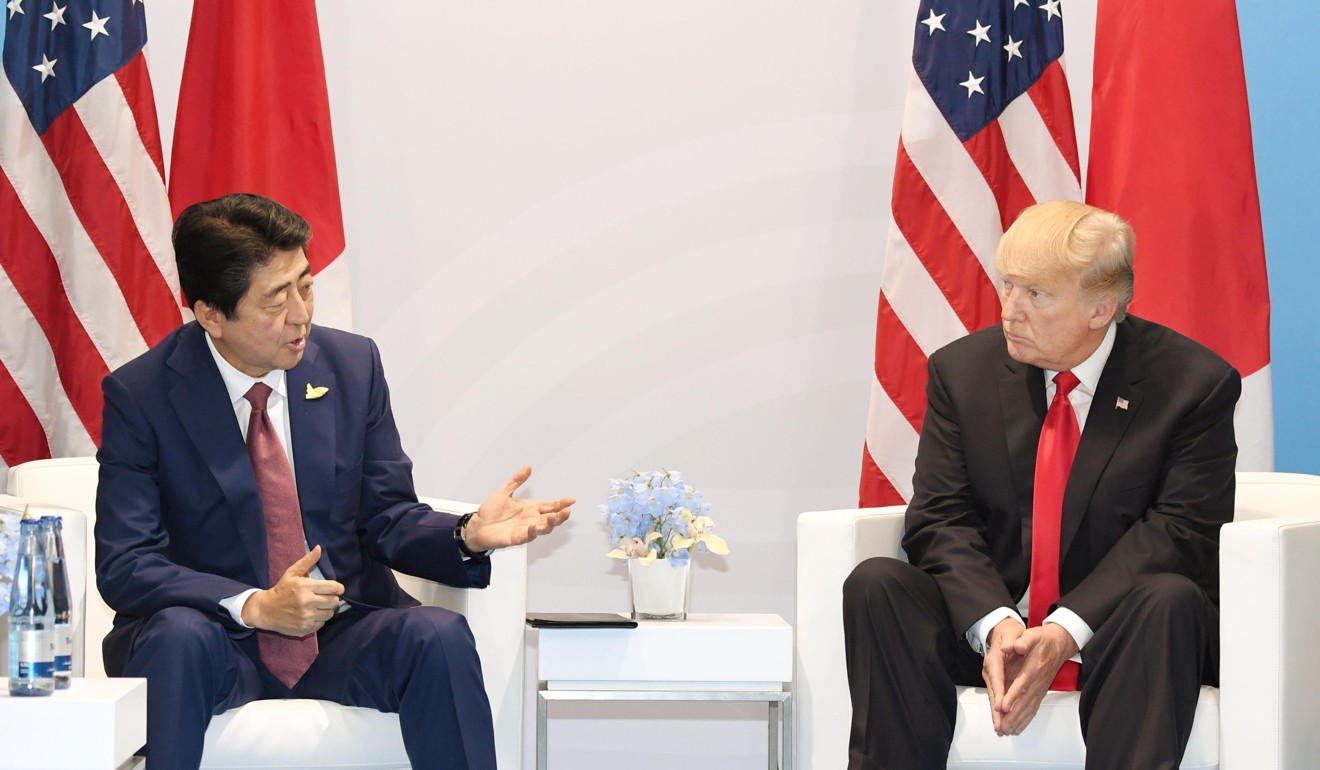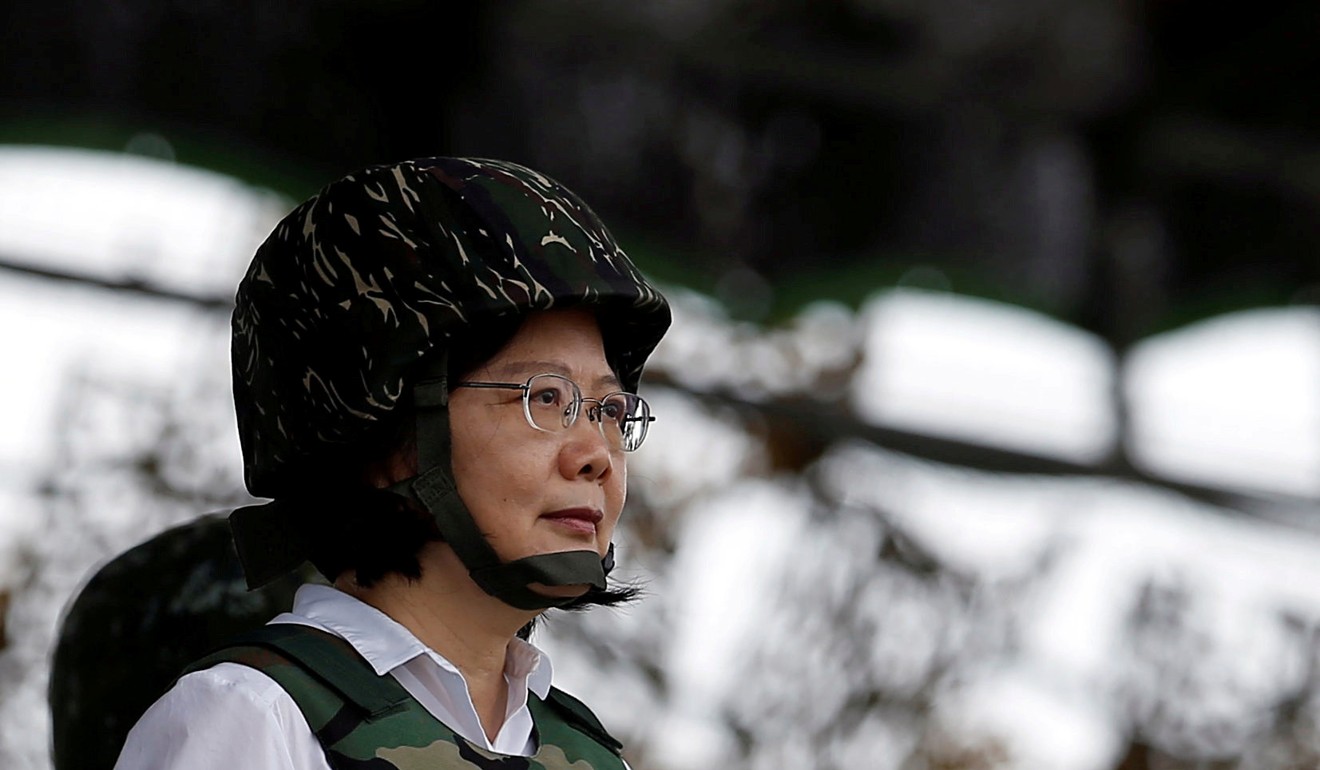
White House names Xi Jinping Taiwan president as Japan’s Abe gets title upgrade
Apparent errors crept into a White House transcript and press release of Trump’s meetings with President Xi Jinping and Japan’s PM Shinzo Abe in Hamburg
US President Donald Trump’s press secretary has mislabelled the leaders of China and Japan, adding to an embarrassing list of errors from the White House media office.
Trump hailed his “wonderful relationship” with China’s President Xi Jinping during talks at the G20 – although his felicitations were undermined when the White House mistakenly referred to the Communist party chief as the president of Taiwan.
The apparent error crept into a White House transcript of Trump’s remarks before meeting with Xi in Hamburg, which referred to the president of the Republic of China - the official name for Taiwan.
Taiwan’s democratically elected president is Tsai Ing-wen.

On Saturday, the White House press office also incorrectly referred to Prime Minister Shinzo Abe as “President Abe of Japan” in a press release detailing Trump’s meeting with the Japanese leader during the G20 summit.
However, Trump did correctly refer to the leader of Japan as prime minster during his remarks.
China specialists immediately picked up on the Xi blunder – as, too, would have Beijing.
“What a bunch of amateurs ,” tweeted Bill Bishop, the publisher of Sinocism , a newsletter about China’s economy and politics.
“It’s a pretty major faux pas,” said Bonnie Glaser, a China expert at Washington’s Centre for Strategic and International Studies.
The misstep bearing the name of Press Secretary Sean Spicer shows the sensitivity of the issue. Before Trump took office, he publicly toyed with the idea of abandoning the “One China” policy that acknowledges China’s claim over Taiwan and suggested that it could be a bargaining chip in trade negotiations.
Tension rose further after Trump tweeted about a protocol-breaking phone conversation with Tsai on December 2 and subsequently questioned the One China policy in interviews.
Three weeks into his presidency, Trump dropped the gambit, paving the way for a phone call with Xi and kicking off a relationship between the two which led to meetings at Mar-a-Lago in April and at the G20 on Saturday.

This isn’t the first time the White House press team has misidentified a world leader since Trump took office.
In January, the White House misspelled British Prime Minister Theresa May’s first name, leaving out the letter “h,” in a memo and official schedule sent to the press.
The White House promptly corrected the error but not before several news outlets noted the misspelling was the name of a different public figure: former adult film star Teresa May.
In February, Spicer referred to Canada’s Prime Minister Justin Trudeau as “Joe” during a press conference.
But gaffes and misspellings happen. President Barack Obama’s press office misspelled President Ronald Reagan twice in a release in 2014.
In a gaffe in 2006, a White House announcer introduced “the national anthem of the Republic of China” as then-president George W. Bush and former Chinese president Hu Jintao stood together during the latter’s visit to Washington.
Giving a clock as a gift is an absolute no-no in places where the Chinese language is spoken, especially in Hong Kong, Taiwan and the mainland. That’s because in both Mandarin and Cantonese, the phrase for “giving a clock” sounds the same as the phrase used for bidding farewell to the deceased.
Bloomberg, The Guardian, The Washington Post
